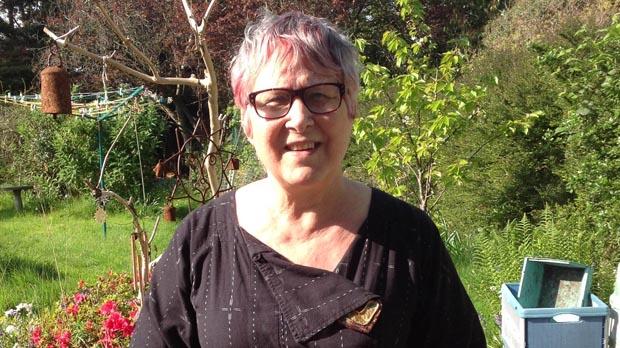
"I was delighted to take part in a clinical trial as it has the potential to really help others in the future.”
This study developed questions that helped doctors to identify people who had tummy or bowel problems following radiotherapy treatment for cancer.
Radiotherapy to the area between the hips (the  ) can cause long term side effects. For example, diarrhoea or pain. These symptoms can cause significant problems with socialising, work or travel. Despite being very common, sometimes these symptoms aren’t picked up.
) can cause long term side effects. For example, diarrhoea or pain. These symptoms can cause significant problems with socialising, work or travel. Despite being very common, sometimes these symptoms aren’t picked up.
In this study, researchers developed a brief set of questions to help doctors identify the problems. The aim was it would help doctors to refer people to a specialist to control the symptoms that might cause these problems. This is called a screening tool.
The study team asked people who had problems after radiotherapy to fill out the screening tool they developed. They then asked them about any possible problems they could see with using the tool.
Their answers helped the researchers to finalise the tool ready for doctors to use.
The team developed a screening tool called ALERT-B that doctors could use to identify people who might have problems after pelvic radiotherapy.
About this study
There were 4 parts in the DESIGNER study.
In part 1, the researchers developed the ALERT-B screening tool. They searched journals looking for articles about questionnaires already used to identify people with these problems. A panel of 8 people reviewed these questionnaires. The people were:
 and have experience of treating long term problems pelvic radiotherapy can cause
and have experience of treating long term problems pelvic radiotherapy can causeIn part 2, the team wanted to find out:
A total of 12 people took part (6 women and 6 men). Between October 2013 and January 2014, the team interviewed these people.
Each person completed the ALERT-B questionnaire. They were then asked about how easy it was to understand the instructions and the questions.
In part 3, a panel of 9 people used what was reported in part 2 to improve the questions in the ALERT-B screening tool. The people were:
In the part 4, the ALERT-B screening tool was tested in a  .
.
Results
3 questions made up the final ALERT-B tool. The researchers found the questionnaire was:
The questions covered the following:
 including mood, relationships and socialising
including mood, relationships and socialisingConclusion
The study team concluded that ALERT-B is a useful screening tool. Doctors can use it to improve the supportive care after radiotherapy to the area between the hips (pelvis). It can prompt the doctor when to refer the patient to another doctor who specialises in problems with the digestive system.
A clinical trial called EAGLE has tested and confirmed that ALERT-B is a useful screening tool.
Where this information comes from
We have based this summary on information from the research team. The information they sent us has been reviewed by independent specialists ( ) and published in a medical journal. The figures we quote above were provided by the trial team who did the research. We have not analysed the data ourselves.
) and published in a medical journal. The figures we quote above were provided by the trial team who did the research. We have not analysed the data ourselves.
Please note: In order to join a trial you will need to discuss it with your doctor, unless otherwise specified.
Dr John Green
Cardiff University
National Institute for Health Research Cancer Research Network (NCRN)
Tenovus
If you have questions about the trial please contact our cancer information nurses
Freephone 0808 800 4040

"I was delighted to take part in a clinical trial as it has the potential to really help others in the future.”